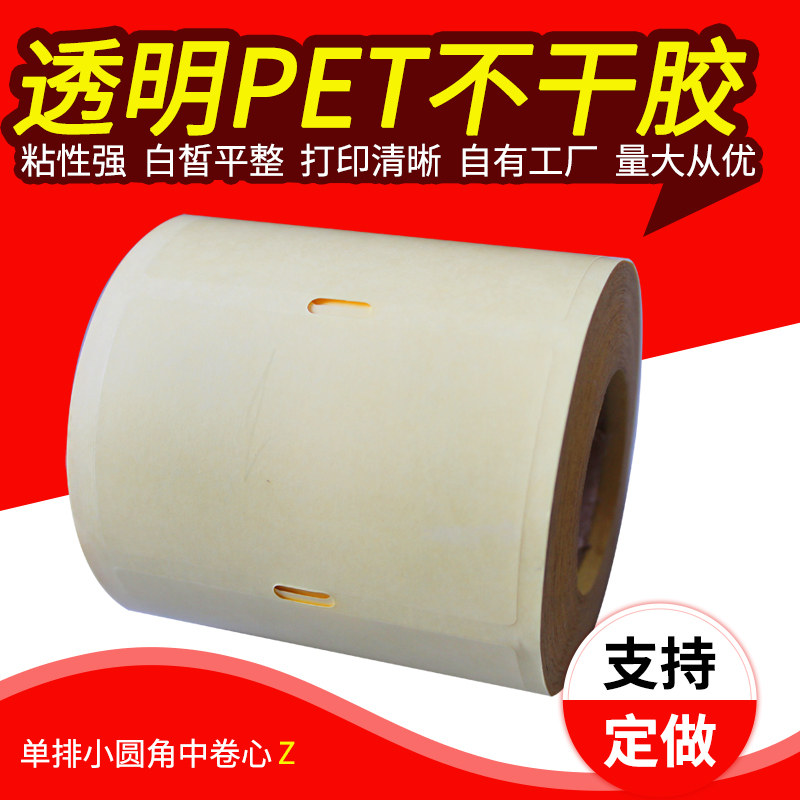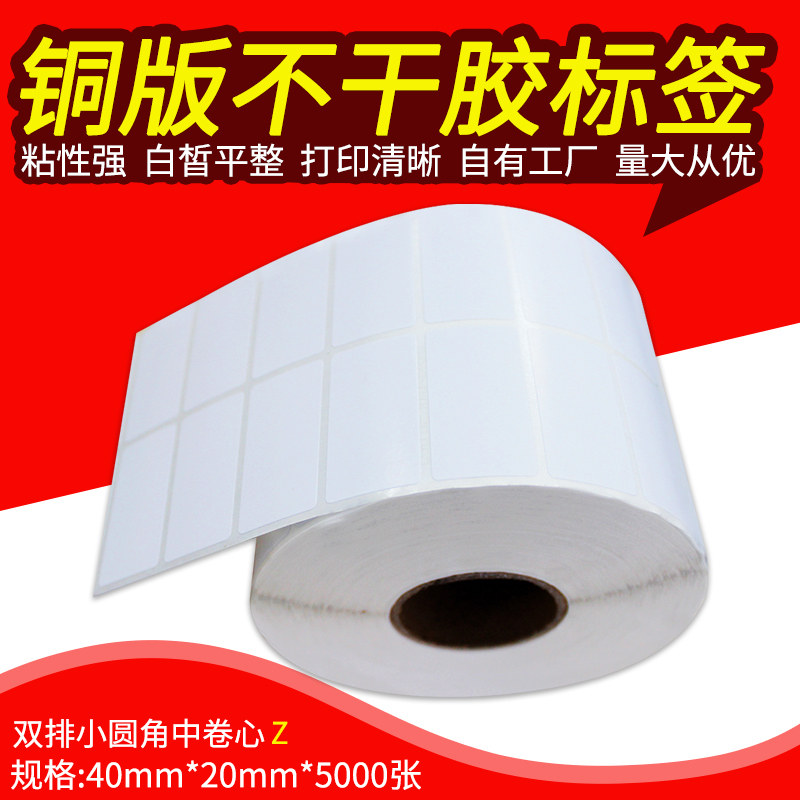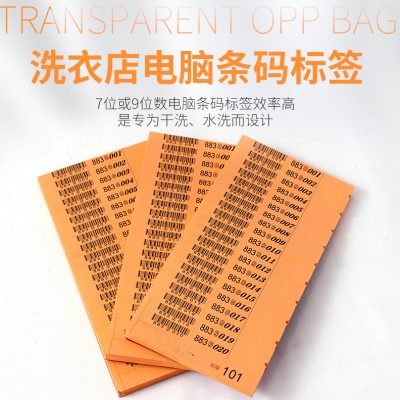条形码标签纸的种类及其在不同行业的适用性
尕枯非生
2024-10-31 06:53:07
0次
条形码标签纸的种类及其在不同行业的适用性
条形码标签纸是一种广泛应用于各种行业的重要工具,它以其高效、准确和易于识别的特性,为各种产品的追踪和管理提供了便利。根据不同的材质、形状和功能,条形码标签纸的种类繁多,且每种类型都有其特定的适用行业。
一、条形码标签纸的种类
1. 纸质标签:纸质标签是最常见的条形码标签纸,由于其成本低廉、印刷方便、耐水性良好等特点,被广泛应用于零售、食品、药品等各个行业。
2. 合成纸标签:合成纸标签是一种环保型标签,具有较好的耐久性和防水性,适用于户外环境或者需要较高抗腐蚀性的场合。
3. 聚酯类标签:聚酯类标签具有良好的抗化学性、抗磨损性和高温耐性,常用于航空、化工、医疗等对环境要求较高的行业。
4. 特殊材质标签:如金属标签、电子标签等,这些标签具有独特的防伪功能,适用于高端产品或需要高度安全保障的场合。
二、条形码标签纸在不同行业的适用性
1. 零售行业:纸质标签是零售行业最常用的条形码标签纸,其成本低廉且易于打印,可以快速完成商品的进货、销售和库存管理。
2. 食品行业:食品行业对标签的卫生性和耐水性有较高要求,因此纸质标签和合成纸标签是主要选择。这些标签可以清晰地标示出产品的生产日期、保质期等信息,有助于保证食品安全和卫生。
3. 化工行业:由于化工行业对环境的特殊要求,聚酯类标签和特殊材质的电子标签更为适用。这些标签可以抵抗化学腐蚀和高温环境,保证产品的准确追踪和管理。
4. 物流行业:物流行业需要大量的标签来进行货物的追踪和管理,纸质标签和电子标签都较为常见。电子标签具有较高的防伪性能和追踪效率,可以提高物流管理的效率和准确性。
5. 医疗行业:医疗行业对标签的卫生性和防伪性有严格要求。金属标签和特殊材质的电子标签在医疗行业中应用广泛,如药品的追溯管理、医疗设备的标识等。
总之,不同类型的条形码标签纸在不同行业中都有其独特的适用性。选择合适的条形码标签纸可以提高工作效率、保证产品质量和安全,为企业的管理和运营提供有力支持。
Barcode Label Paper Types and Their Applicability in Different Industries
Barcode label paper is an important tool widely used in various industries. With its efficient, accurate, and easy-to-identify characteristics, it provides convenience for the tracking and management of various products. There are many types of barcode label paper, ranging from different materials, shapes, and functions. Each type has its specific applicability in different industries. Firstly, the types of barcode label paper: 1. Paper labels: Paper labels are the most common type of barcode label paper. Due to their low cost, easy printing, and good water resistance, they are widely used in various industries such as retail, food, and pharmaceuticals. 2. Synthetic paper labels: Synthetic paper labels are an environmentally friendly type of label with good durability and water resistance, suitable for outdoor environments or situations requiring high corrosion resistance. 3. Polyester labels: Polyester labels have good chemical resistance, wear resistance, and high-temperature resistance, often used in industries with high environmental requirements such as aviation, chemicals, and medical fields. Secondly, the applicability of barcode label paper in different industries: 1. Retail industry: Paper labels are the most commonly used barcode label paper in the retail industry due to their low cost and easy printing. They can quickly complete the purchase, sales, and inventory management of goods. 2. Food industry: The food industry has higher requirements for the hygiene and water resistance of labels. Therefore, paper labels and synthetic paper labels are the main choices. These labels can clearly indicate product information such as production date and shelf life, helping to ensure food safety and hygiene. 3. Chemical industry: Due to the special requirements of the chemical industry on the environment, polyester labels and special material electronic labels are more applicable. These labels can resist chemical corrosion and high-temperature environments to ensure accurate product tracking and management. 4. Logistics industry: The logistics industry requires a large number of labels for cargo tracking and management, with both paper labels and electronic labels being common. Electronic labels have high anti-counterfeiting performance and tracking efficiency, improving the efficiency and accuracy of logistics management. 5. Medical industry: The medical industry has strict requirements for the hygiene and anti-counterfeiting of labels. Metal labels and special material electronic labels are widely used in相关内容
热门资讯
揭秘条码标签纸:功能、特点及适...
条码标签纸是一种用于打印条形码和二维码的纸质材料,广泛应用于零售、物流、医疗、制造等行业,具有耐用、...
解锁条码标签纸的多样应用场景
条码标签纸具有广泛的应用场景和价值,可应用于零售、物流、医疗、生产制造等多个行业,实现快速识别、管理...
条码标签纸:办公耗材中的必备利...
条码标签纸是办公耗材中不可或缺的利器,适用于多领域,可快速准确记录和识别信息,提高效率和数据安全性,...
提升效率:条码标签纸在办公流程...
条码标签纸在办公流程中扮演重要角色,能自动化追踪、快速识别分类、减少错误率、管理库存、增强可读性、适...
条码标签纸的选购指南:提升办公...
选购条码标签纸需明确需求,考虑材质、尺寸、粘性、抗污性和兼容性等因素,选择知名品牌和合适价格,并注意...
解析条码标签纸:如何成为现代办...
条码标签纸在办公中,快速、准确管理物品信息。选材合理,设备解析迅速,配合软件可高效管理物品信息,并培...
探索条码标签纸的多样化用途与优...
条码标签纸在零售、物流、资产管理、医疗保健和工业制造等领域具有多样化用途,其优势包括高效性、准确性、...
选购指南:如何选择适合你的条码...
选购条码标签纸需考虑使用环境、条码类型、标签尺寸形状、材质、成本效益及品牌质量。选择适合的标签纸能提...
条码标签纸的印制技术及优势分析
文章摘要:本文介绍了条码标签纸的印制技术,包括印刷、涂层处理和条码打印等环节,并分析了其高质、耐用、...
办公室中的小助手:条码标签纸的...
条码标签纸是办公室中的小助手,可进行物品标识、资产管理、库存管理、快递与邮件管理及会议活动标识,提高...



